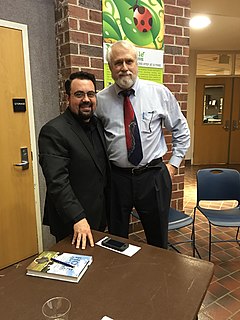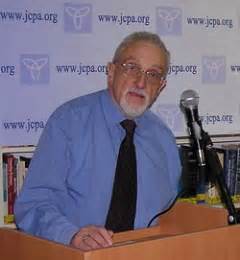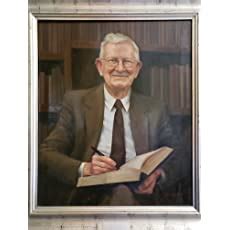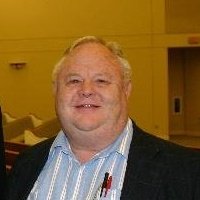A Quote by Timothy Keller
A church must be more deeply and practically committed to deeds of compassion and social justice than traditional liberal churches and more deeply and practically committed to evangelism and conversion than traditional fundamentalist churches. This kind of church is profoundly counter-intuitive to American observers. It breaks their ability to categorize (and dismiss) it as liberal or conservative. Only this kind of church has any chance in the non-Christian west.
Quote Topics
Related Quotes
What James Madison and the other men of his generation had in mind when they wrote the First Amendment was that there should be no official relationship of any character between government and any church or many churches, and no levying of taxes for the support of any church, or many churches, or all churches, or any institution conducted by any of them.
At a time when many churches throughout the world are experiencing significant decreases in numbers, The Church of Jesus Christ of Latter-day Saints - though small in comparison with many others - is one of the fastest growing churches in the world. As of September 2013, the Church has more than 15 million members around the world.
Religion does a lot of good, especially the loving kind, like at Grace Church. I know people who went to a more liberal kind of Christianity and were happy with that. The problem is, for me, there was a process involved in moving from Pentecostalism to a more liberal theology, like Grace Church. What makes me different is that process didn't stop, and it took me all the way. In the end, I couldn't help feeling that all religion, even the most loving kind, is just a speed bump in the progress of the human race.
I call this my church house trilogy. Souls' Chapel really was music from the Mississippi Delta, which to me is a church within itself. The Delta is the church of American Roots music. The Badlands is a cathedral without a top on it. And the Ryman has been called the Mother Church of Country Music, but to me it's the Mother Church of American Music. If you can think it up, it's been done there. In my mind, this is kind of a spiritual odyssey as much as anything else, and I had the settings of three churches to make it in.
We stink more of the world than we stink of sack cloth and ashes. A lot of contemporary churches today would feel more at home in a movie house rather than in a house of prayer, more afraid of holy living than of sinning, know more about money than magnifying Christ in our bodies. It is so compromised that holiness and living a sin-free life is heresy to the modern church. The modern church is, quite simply, just the world with a Christian T-shirt on!
We have to separate here the church in its broad sense. We have Catholics, Protestants, Eastern Orthodox churches. The Catholic church is a corporation like a chief executive. A fairly homogenous operation. Today its attitude toward anti-Semitism is much more severe than it's ever been. The Catholic Church today is much less the problem than the other groups.
If churches saw their mission in the same way, there is no telling what might happen. What if people were invited to come tell what they already know of God instead of to learn what they are supposed to believe? What if they were blessed for what they are doing in the world instead of chastened for not doing more at church? What if church felt more like a way station than a destination? What if the church’s job were to move people out the door instead of trying to keep them in, by convincing them that God needed them more in the world than in the church?
There was the strangest combination of church influence against me. Baker is a Campbellite; and therefore, as I suppose with few exceptions, got all of that Church. My wife had some relations in the Presbyterian churches, and some in the Episcopal churches; and therefore, wherever it would tell, I was set down as either one or the other, while it was everywhere contended that no Christian ought to vote for me because I belonged to no Church, and was suspected of being a Deist and had talked of fighting a duel.
There are congregations on nearly every corner. I'm not sure we need more churches. What we need is a church. I say one church is better than fifty. I have tried to remove the plural form churches from my vocabulary, training myself to think of the church as Christ did, and as the early Christians did. The metaphors for her are always singular - a body, a bride. I heard one gospel preacher say it like this, as he really wound up and broke a sweat: "We've got to unite ourselves as one body. Because Jesus is coming back, and he's coming back for a bride not a harem.
But I must add that the U.S. government must not, as by this order, undertake to run the churches. When an individual, in a church or out of it, becomes dangerous to the public interest, he must be checked; but let the churches, as such take care of themselves. It will not do for the U.S. to appoint Trustees, Supervisors, or other agents for the churches.
I decided to live as an individual and as I grew older, and thought more, and read more and experienced more, my views became more conservative. But my group is liberal. Not only that, they say, 'If you're not liberal and not a Democrat, you're not black. If you're conservative, you're a sellout.' Here, then, I'm living with that kind of a pressure against my individuality.

































